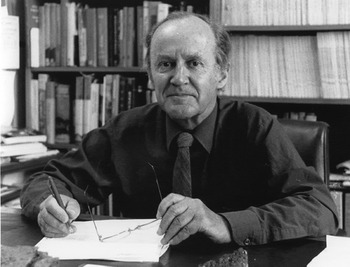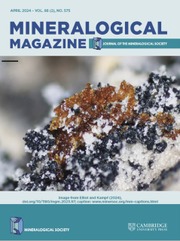
Doug Coombs, distinguished mineralogist and petrologist and an Honorary Member of the Mineralogical Society since 1986, was born and died in Dunedin, New Zealand, on 23rd November 1924 and 23rd December 2016. He graduated MSc (N.Z.) in Geology at Otago University in 1948. With an 1851 Scholarship he then obtained, in 1952, a Cambridge University PhD partly on the incipient metamorphism of tuffs and greywackes of Taringatura, Southland, New Zealand, a topic plus the regional study of the Canterbury Torlesse greywackes he continued to advance for years at Dunedin, encouraged initially by W. N. Benson FRS, Frank J. Turner and in zeolite synthesis by W. (Bill) S. Fyfe (later FRS). Doug defined for the first time the two lowest grades of metamorphism, previously unrecognized: the zeolite facies (three of which minerals he named) and the prehnite–pumpellyite facies. He was appointed Lecturer in Geology in Otago University in 1952 and then Professor of Geology and Head of Department in 1956 and served in both roles for 37 years. He was an inspirational leader until retirement in 1990, after which he continued to publish for another 22 years as Emeritus Professor.
Doug was a sharp field man, a superb petrographic microscopist and an outstanding mineralogist and petrologist, with ~150 publications, 40 of which postdate 1990, and was an expert on the zeolite mineral group, the nomenclature of which follows the 1997 International Mineralogical Association's (IMA) scheme devised by the committee he chaired. He published on many South Island rocks, particularly basalts, especially those of Dunedin, and the various terranes of South Island. He built the Otago Department up to become a leading international one in Earth Science with many visiting researchers, including the writer in 1993, but also one that was very friendly, ably assisted by his wife Anne. He got the best out of people with his encouragement. Doug was very well known outside New Zealand as he lectured and attended many international conferences and field trips such as to China, Japan, USSR, Iceland, Sweden, Chile and Guam, was a Visiting Professor at the Universities of Pennsylvania State, Yale, Toronto, Geneva, California at Santa Barbara and Kochi, Japan. He was also on the council of several international bodies, e.g. IMA (Vice President 1982–6).
Doug was a very keen sportsman, playing cricket regularly from his time at school until late in his career and was an Otago University and Emmanuel College Cambridge Cricketing Blue. He also fished, gardened, studied New Zealand flora, enjoyed music and delved into his genealogy; the family came from Nailsea, Somerset, in England.
Doug was awarded many honours including having coombsite, a rare Mn mineral, K(Mn2+,Fe2+,Mg)13(Si,Al)18O42(OH)14 isostructural with zussmanite first found in South Island, named for him, several fossils and Coombs Hills in Antarctica; he was elected FRSNZ in 1962, awarded that society's 1969 Hector Medal, then the highest New Zealand science prize, also an Honorary DSc (Geneva) in 1974, made a Life Fellow of the Mineralogical Society of America (1977) and an Honorary Fellow of the Mineralogical Society in 1986 plus the high distinction of becoming a Companion of the New Zealand Order of Merit (CNZM) in 2002.
Doug married Anne G. Tarrant in 1956 and she survives him plus their children, Bernard, Roderick and Jane, and six grandchildren.
I thank Anne Coombs for information and Wikipedia, Royal Society of New Zealand (A. Cooper) and Otago Daily Times, 18 Feb. 2017 (K. Sinclair), which contain more details.


